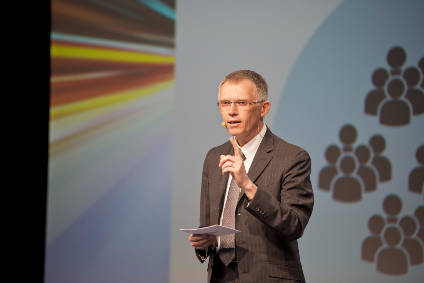
Stellantis insists the fusion of PSA and FCA is not a "crisis merger" as the fledgling company looks to cement its new identity.
Outlining the last set of results for the separate PSA and FCA manufacturers in Paris yesterday (3 March), Stellantis CEO, Carlos Tavares stressed the power of the fresh combination as it looks to a post-pandemic world.

Discover B2B Marketing That Performs
Combine business intelligence and editorial excellence to reach engaged professionals across 36 leading media platforms.
"We have to do things properly and improve the efficiency and effectiveness of everything we do," said Tavares. "It is also about making sure we will be making disruptive decisions, as many as necessary, to make sure no-one is going to corner Stellantis as a legacy car carrier.
"There is no way we are going to accept to be a legacy company. What we are going to do is not only demonstrate we can be efficient, but we are able to make disruptive decisions. FCA/PSA did their homework by completely leveraging the power of their H2 results to create a strong financial foundation, to create the birth of Stellantis. We are starting on the right foot.
"This is not a crisis merger; this is a merger that is going to open new opportunities for people who want to compete and who do not want to be cornered in a legacy or dinosaur position. Stellantis is not born from a crisis; it is born that the two companies will be stronger together.
"This is not about creating a defensive plan, it is also an offensive plan."
The Stellantis chief also highlighted several strands of the business, which were important, such as supplier price alignment, commodity buying, logistics integration and reduced distribution costs.
Tavares stressed Stellantis would remain in China, even though he recognised the company had "not been successful so far." Other headwinds include the current semiconductor shortage and raw material inflation.
As COVID-19 inoculation programmes start to gather pace around the globe, Tavares equally painted a rosier picture as the world slowly emerges from the global economic turbulence.
"If the vaccination process goes ahead as it is going ahead in North America [for example], we expect things to be going in a better direction," added Tavares. "We are keeping some of the cost-saving initiatives from the coronavirus period."






